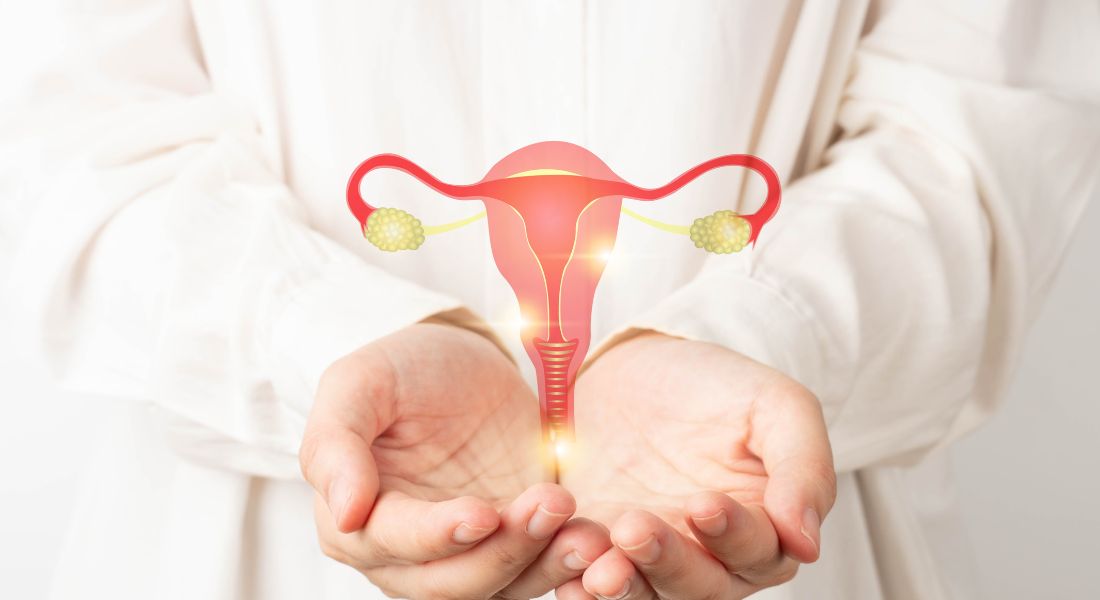Categories
How Serious Is PCOS?
Nov 08, 2022
If you’ve recently been diagnosed with PCOS, this guide should come as welcome comfort Unexplained weight gain. Excessive facial hair. Skipped periods. These are just some of the many ways that polycystic ovary syndrome (PCOS) is manifested in women. The condition can range in severity, from full-blown effects in some women, to more muted symptoms in others. If you’ve experienced symptoms of PCOS, or have been formally diagnosed, you’re likely concerned about how serious the condition is. If so, take heart. With a healthy lifestyle, it’s possible to tame PCOS and minimize its symptoms.
Dealing with polycystic ovary syndrome PCOS is a hormonal condition that often results in absent, prolonged or infrequent periods. The condition also causes small follicles to grow atop the ovaries, hampering regular ovulation. Experts are yet to determine the exact cause of PCOS, although it is well-accepted that early diagnosis and timely polycystic ovary syndrome treatment can impede long-term risks such as heart disease and type 2 diabetes.
Causes of polycystic ovary syndrome The exact cause of PCOS isn't known. Factors that might play a role include: Surplus insulin production
Insulin is the hormone responsible for sugar absorption by the cells, and helps fuel your body with vital energy. When such absorption is absent or compromised, blood sugar levels can spiral upward, forcing your body to produce even more insulin. Excess insulin in the body can pump up androgen levels and hamper ovulation.
Inflammation Studies show that PCOS is associated with low-grade inflammation, which pushes polycystic ovaries to produce surplus androgens.
Genetic factors There is evidence that PCOS is hereditary. So, if your mother or sister have the condition, you’re more likely to be affected by it.
Unexplained excess androgen
Sometimes, androgen overproduction might occur without any ostensible causes. This might, in turn, trigger acne and excessive facial and body hair.
Symptoms of polycystic ovary syndrome
The onset of PCOS might occur once a girl reaches puberty, or be triggered later on, as a result of sudden weight gain or an unhealthy diet. PCOS symptoms are more pronounced in overweight and obese women. A diagnosis is usually made when two or more of the following are observed:
• Irregular, absent or prolonged periods • Excessively heavy or painful periods • Outbreak of facial or body hair caused by increased androgen levels • Severe acne or male-pattern baldness due to excess androgen • Polycystic ovaries (that are enlarged and contain follicles around the eggs) as clearly visualized in an ultrasound When to seek help from a specialist If you’re worried about the length, frequency or absence of your periods, excess facial and body hair, acne or male pattern baldness, or if you’re struggling with infertility, it’s a good idea to consult a gynecologist to check for PCOS. Appropriate and timely treatment can reverse your symptoms and keep them from recurring.
The big question: Is polycystic ovary syndrome serious? Left unchecked, polycystic ovary syndrome can lead to infertility, gestational diabetes, miscarriage, stillbirth, preterm labor, high blood pressure, metabolic syndrome, sleep apnea, liver inflammation, type 2 diabetes, abnormal uterine bleeding, endometrial cancer and depression, anxiety and eating disorders. However, the good news is that although there’s no cure, there are plenty of ways to minimize or mute PCOS symptoms. While symptoms such as erratic or irregular periods, excess facial hair and acne might require medication, women experiencing infertility can get help from specialized fertility treatments (these might be oral or with the help of assisted reproductive technologies).
PCOS affects one in ten women of childbearing age, so while you may feel isolated with your diagnosis, it’s important to remember you’re not alone. With timely treatment, you can reset your hormonal equilibrium. At BirthRight by Rainbow, our gynecologists and fertility specialists have helped many women with PCOS overcome their symptoms with tailored polycystic ovary syndrome treatments. Book a women’s health checkup today to get help for your condition.
Looking for polycystic ovary syndrome treatments? Get the specialist treatment you need by scheduling a women’s health checkup here.











